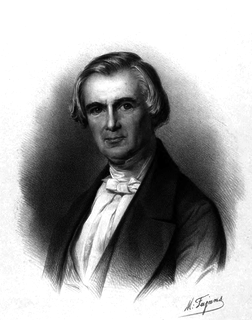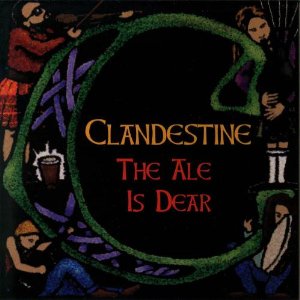The polka is originally a Czech dance and genre of dance music familiar throughout Europe and the Americas. It originated in the middle of the 19th century in Bohemia, now part of the Czech Republic. The polka remains a popular folk music genre in many European countries, and is performed by folk artists in the Czech Republic, Germany, Austria, Poland, Slovenia, Switzerland, Croatia and Finland, and to a lesser extent in Latvia, Lithuania, the Netherlands, Hungary, Italy, Ukraine, Romania, Belarus, Russia, and Slovakia. Local varieties of this dance are also found in the Nordic countries, Spain's Basque Country, the United Kingdom, Ireland, Latin America and the United States.

Pulaski is a village in Brown, Oconto, and Shawano counties in the U.S. state of Wisconsin. The population was 3,539 at the 2010 census. Of this, 3,321 were in Brown County, 218 in Shawano County, and none in Oconto County.

Karol Józef Lipiński was a Polish music composer and virtuoso violinist active during the partitions of Poland. The Karol Lipiński University of Music in Wrocław, Poland is named after him.

The Polish Legions was a name of the Polish military force established in August 1914 in Galicia soon after World War I erupted between the opposing alliances of the Triple Entente on one side ; and the Central Powers on the other side, including the German Empire and Austria-Hungary. The Legions became "a founding myth for the creation of modern Poland" in spite of their considerably short existence; they were replaced by the Polish Auxiliary Corps formation on 20 September 1916, merged with Polish II Corps in Russia on 19 February 1918 for the Battle of Rarańcza against Austria-Hungary, and disbanded following the military defeat at the Battle of Kaniów in May 1918, against imperial Germany. General Haller escaped to France to form the Polish army in the West against the anti-Polish German-Bolshevik treaty.

Brygada Kryzys is one of the most important and influential Polish post-punk bands. The band was founded in 1981 by two well-known guitarist/vocalists from Warsaw, Robert Brylewski and Tomasz Lipiński.

Kazimierz Lutosławski was a Polish physician, priest and Polish Scouting founder and activist. He designed the Krzyż Harcerski.

Cieszyn Silesian dialect is one of the Silesian dialects. It has its roots mainly in Polish and also has strong influences from Czech and German and, to a lesser extent, from Vlach and Slovak. It is spoken in Cieszyn Silesia, a region on both sides of the Polish-Czech border. It lacks some official codification and remains a spoken language. The dialect is better preserved today than dialects of many other West Slavic regions.
Leszek of Masovia was a Polish prince from the Piast dynasty, the Duke of Masovia from 1173 until his death. He was the only son of Bolesław IV the Curly, Duke of Masovia and High Prince of Polan, who survived father. After his father death he inherited Masovia. At the beginning, Leszek ruled under the guardianship of his uncle Casimir II the Just. He was a man of poor health. For a short time he supported his other uncle, Mieszko III the Old, but later decided to reconciled with Kazimierz II, who after Leszek's death inherited his duchy.

Deputy Prime Minister of the Republic of Poland is the deputy of the Prime Minister of Poland and member of the Council of Ministers of the Republic of Poland. They can also be one of the Ministers of the Republic of Poland. The Constitution of the Republic does not limit the number of persons who can hold the position of deputy prime minister simultaneously. As of December 2017, Piotr Gliński, minister of culture and national heritage, Jarosław Gowin, minister of science and higher education and Beata Szydło are the persons holding this office.
Bishops of Vilnius diocese from 1388 and archdiocese from 1925:

The Ale Is Dear is a 1996 studio album by the Celtic band Clandestine.

Zwrot is the main and largest Polish magazine in the Czech Republic, chief magazine of the Polish minority in Zaolzie. It appears monthly, with a circulation of 1,500 (2012). Published by the PZKO, it is financially supported by the Ministry of Culture of the Czech Republic. The editorial staff is housed in Czeski Cieszyn. The current editor-in-chief is Izabela Kraus-Żur.

The Bluegrass Sessions: Tales from the Acoustic Planet, Vol.2 is an album by Béla Fleck. Going back to his bluegrass roots, Fleck put together a band of all-stars of the genre: Sam Bush, Jerry Douglas, Stuart Duncan, Tony Rice, Mark Schatz, Vassar Clements, John Hartford and others.

Miles Davis & Gil Evans: The Complete Columbia Studio Recordings is a box set of music by jazz musicians Miles Davis and Gil Evans originally released on CD in 1996 and remastered and re-released in 2004. It collects work from 1957 through 1968 at Columbia Records recording studios.

Kazimierz Wielki University in Bydgoszcz, also known as the Casimir the Great University, is a state-funded university in Bydgoszcz, Poland. It was named after Casimir III the Great, the King of Poland (1333-70) who granted the city municipal rights on 19 April 1346.

The Bureau of Information and Propaganda of the Headquarters of Związek Walki Zbrojnej, later of Armia Krajowa a conspiracy department created in spring 1940 during the German occupation of Poland, inside the Związek Walki Zbrojnej, then of the Supreme Command of Armia Krajowa.

Witold's Report, also known as Pilecki's Report, is an official report of over 100 pages written in 1943 by Witold Pilecki, a Polish soldier and agent of the Polish resistance, who entered and escaped from the Auschwitz concentration camp. It was the first comprehensive record of a Holocaust death camp to be obtained by the Allies.

Bronisława Dłuska was a Polish physician, and co-founder and the first director of Warsaw's Maria Skłodowska-Curie Institute of Oncology. She was married to political activist Kazimierz Dłuski, and was an older sister of physicist Marie Curie.

Janina Turek, was the author of one of the longest life accounts, also known as factologies.

















